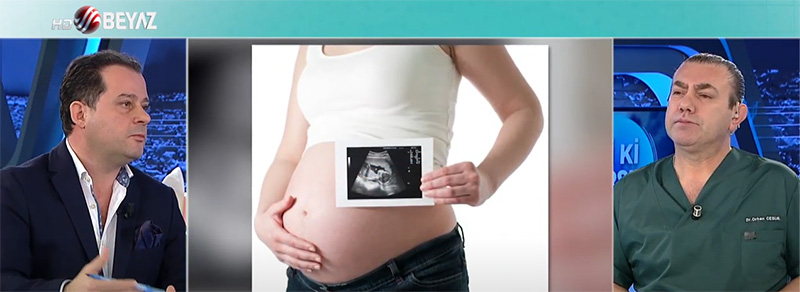
What is HPV (Human Papilloma Virus)?
“Human papilloma virus” is a type of virus that mostly infect the genital area and its mucous membranes in both men and women, causing the formation of reddish or brownish bumps a few millimeters in diameter called condyloma (condyloma acuminatum), which develop around the vagina, penis, vulva, or anus.
HPV is a very common virus that infects roughly one out of every ten people. Once this virus enters the body, it settles in the cells and then leads to periodic recurrent infections. Although HPV and related genital wart infection are mostly sexually transmitted, it is known that they can be transmitted through some other ways, despite rarely, in addition to sexual intercourse.

How is HPV transmitted?
Genital warts can be transmitted through any sexual intercourse with an individual with HPV disease. The virus is transmitted with skin-to-skin contact through microscopic tears and abrasions that occur on the skin during intercourse. Detection of the virus in the male semen suggests that transmission through contact with body fluids is possible, as well. Infection symptoms are not observed in everyone who comes into contact with the virus. However, the partners of 60-90% of individuals with condyloma have been found to have this virus. Once the virus enters the body, it can remain latent for many years. It can be observed in anyone who is sexually active. It is most common in people between 15 to 30 years of age, who have more than one partner, or whose partners have more than one partner. It follows a quite rapid course during pregnancy. Although rarely, it can be transmitted from mother to baby.

What are the Symptoms of HPV?
Since the incubation period of HPV varies depending on its type, it gives symptoms by causing warts in the form of lesions in varying numbers and sizes in the genital area, anus and mouth in both women and men, 2 months to 6 years after infection. In other words, genital warts may appear 2 months after the infection in some people, while they may appear after such a long time of 5 years without any symptoms in some others. Besides the genital, HPV can also be transmitted to the mouth through oral sex, or it can cause genital warts around or inside the anus due to anal sex or proximity to the infected area.

Does HPV Cause Cancer?
HPV doesn't cause genital warts only. This virus has more than 60 different subgroups, some of which are known to cause cervical cancer and penile cancer. Some types can cause anus cancer. Every case of genital warts will not necessarily cause cancer, but it should be known that there is a cancer risk. Most cases of HPV infection are experienced without symptoms. The person's immune system can cope with this virus and neutralizes it before symptoms appear. However, the success of the body's immune system against this virus does not lead to the conclusion that HPV is not dangerous.

HPV Test
If HPV symptoms such as raised warts are observed on the body or if there is risky sexual encounter, a HPV Test should be performed to reveal the presence and type of the virus. The test is performed on a blood sample taken from the person for diagnosis. The course of treatment is determined based on the results of this test. The HPV Test should be performed in authorized laboratories with the recommendation of your physician. Your physician then makes the diagnosis and determines the required treatment protocol according to the result of this test.

How are HPV Infections Treated?
There is no specific treatment for the HPV infections, but in most cases, the infection is observed to be eliminated by the person's immune system. Rather than HPV infections, problems caused by them are treated. Such problems can be treated with drugs or surgical procedures. Warts on the external genital organs can be removed with laser, cryotherapy (freezing) or surgical intervention after the administration of local anesthetics. In addition, drugs can be used, which dry and eliminate the upper skin as well as the HPV in it, with the help of keratolytic agents. Genital warts often recur and may require repeated treatments. Therefore, your doctor physician may recommend drugs with anti-tumor effects that regulate the immune system and prevent cell division during the treatment process.

After HPV treatment
Although HPV genital warts can be removed with surgical interventions or medications, they are problems with a risk of recurrence. It is necessary to use immune system boosting drugs to prevent the recurrence of genital warts, and measures should be taken in order to reduce the risk of genital wart formation. The most effective way of reducing the risk of genital wart formation is to avoid more than one partner. However, in cases where this is not possible, condom use is the most effective precaution. Condom use provides protection against warts as well as many sexually transmitted diseases including AIDS. It should be taken into consideration that condoms do not always provide full protection because warts can also be found outside the area covered by the condom.



 FIND US
FIND US
 WHATSAPP
WHATSAPP
 CALL
CALL
 MESSAGE
MESSAGE










 ABORTION
ABORTION
 Hymen Repair (Hymenoplasty)
Hymen Repair (Hymenoplasty)
 Genital Aesthetics
Genital Aesthetics
 HPV - Genital Warts
HPV - Genital Warts

 LEGAL NOTICE
LEGAL NOTICE